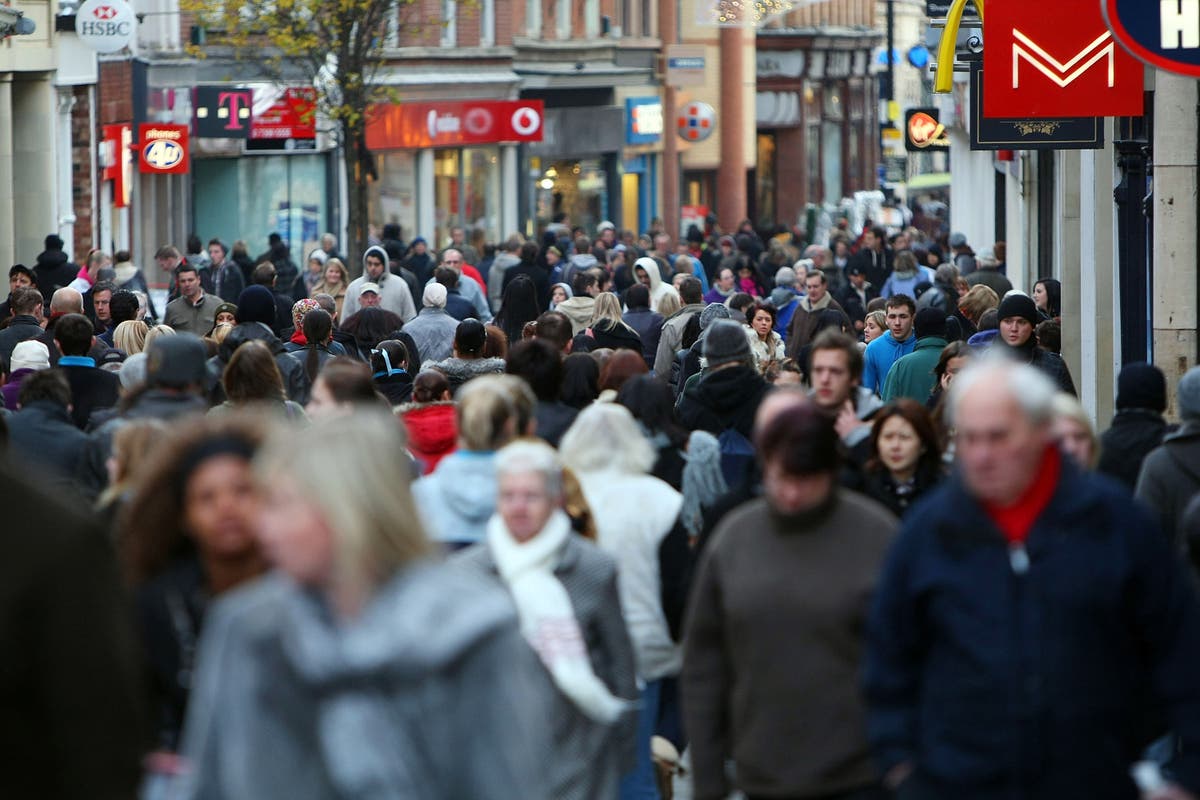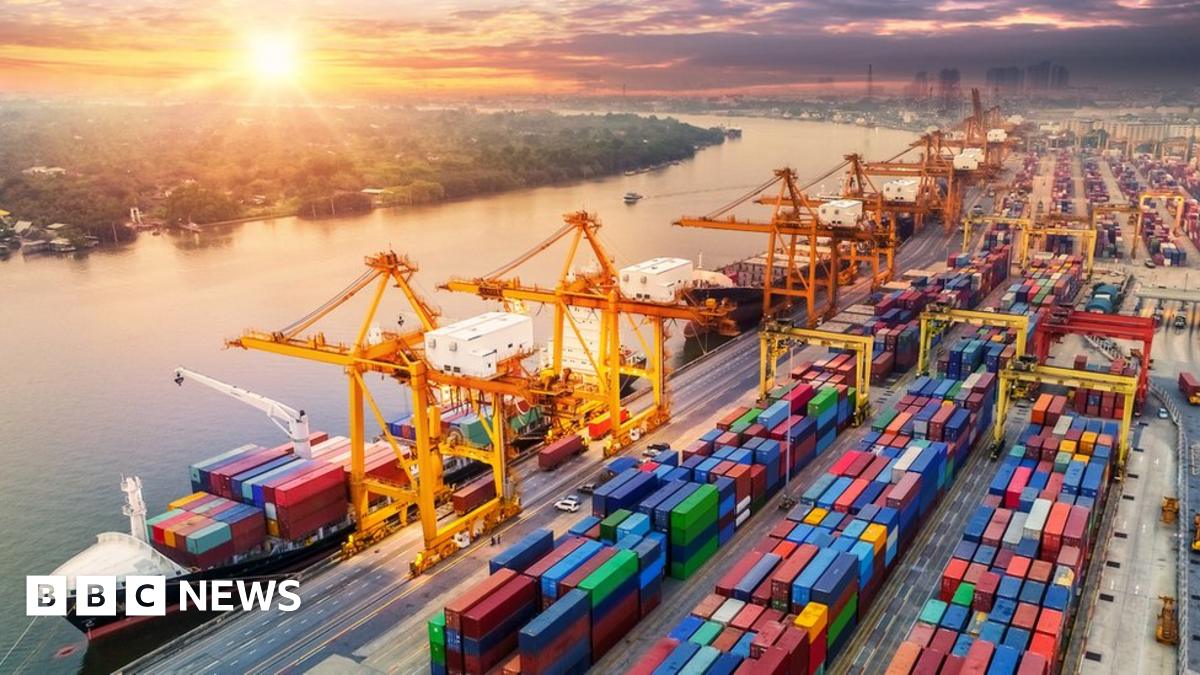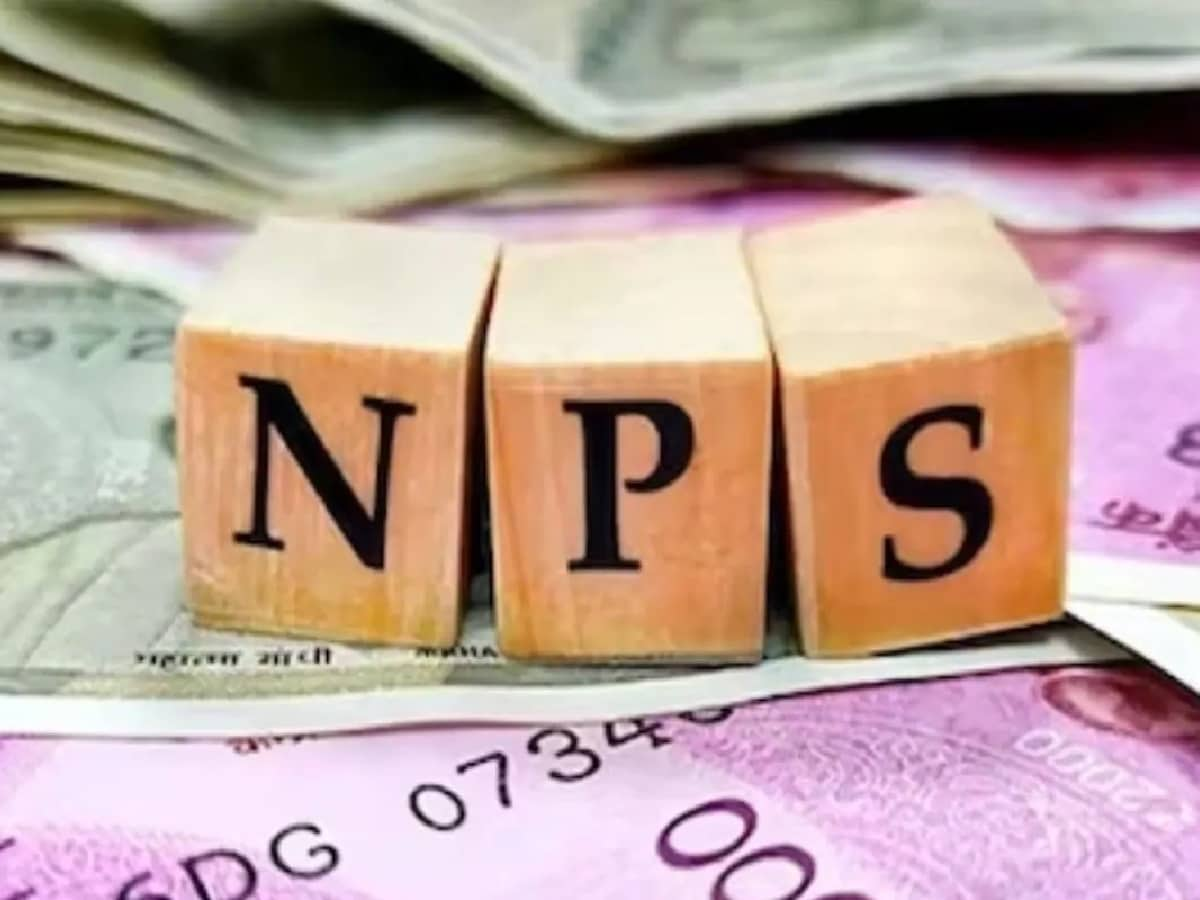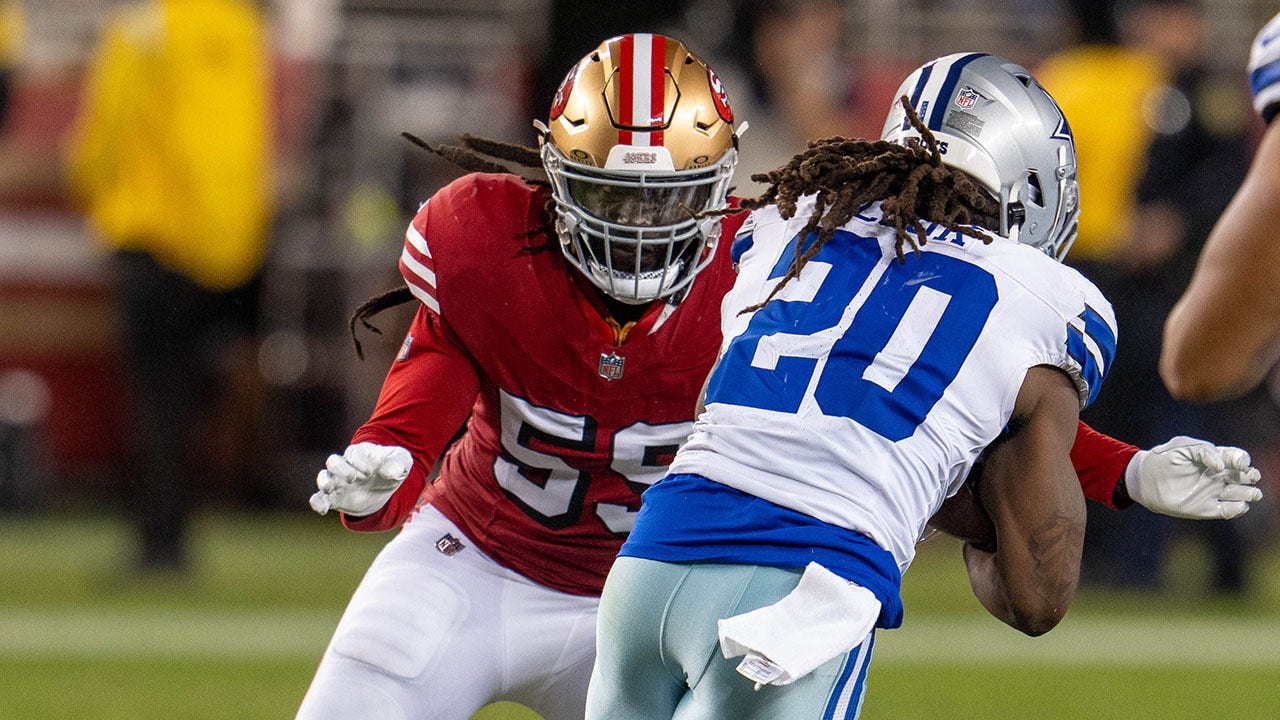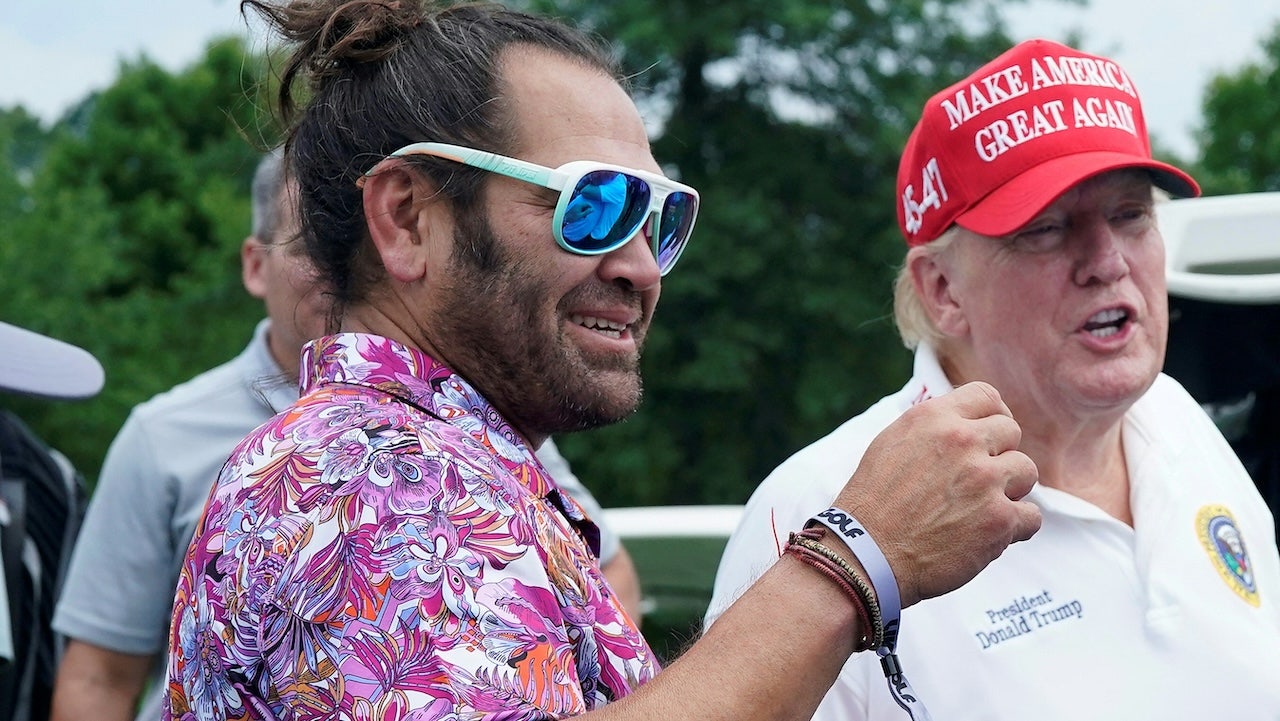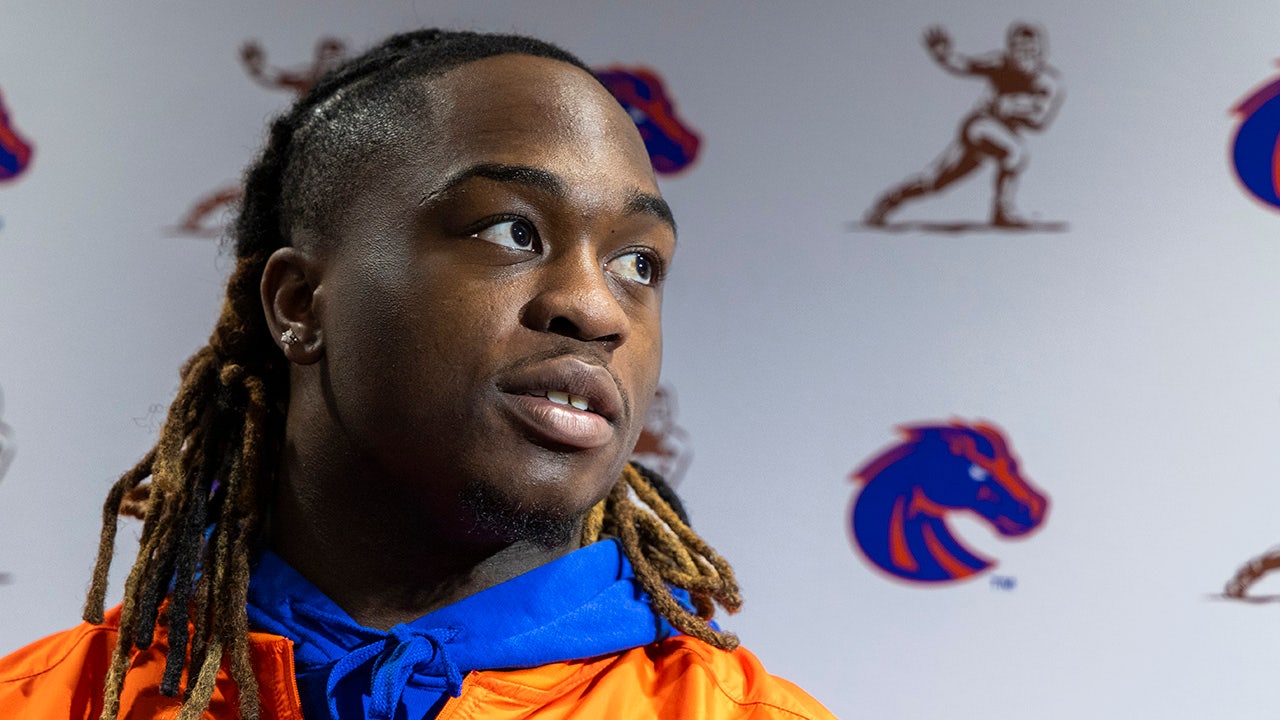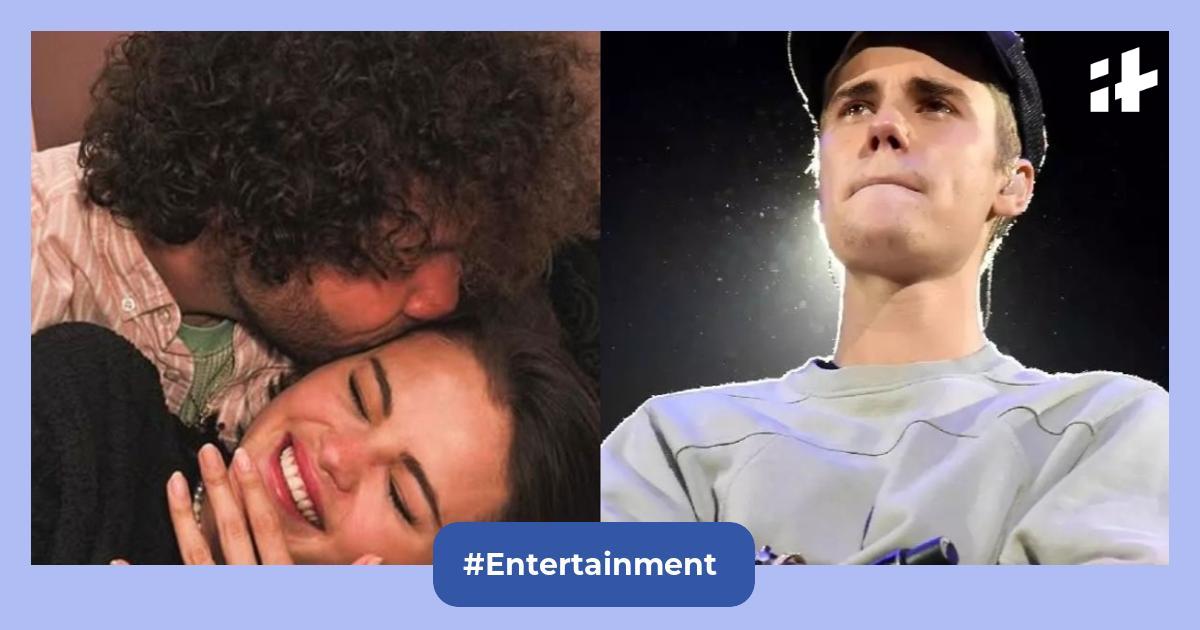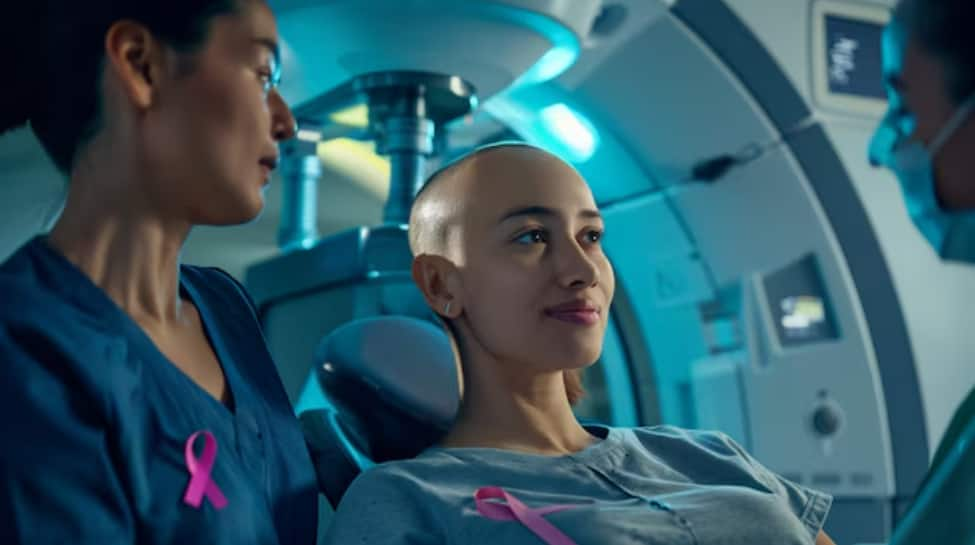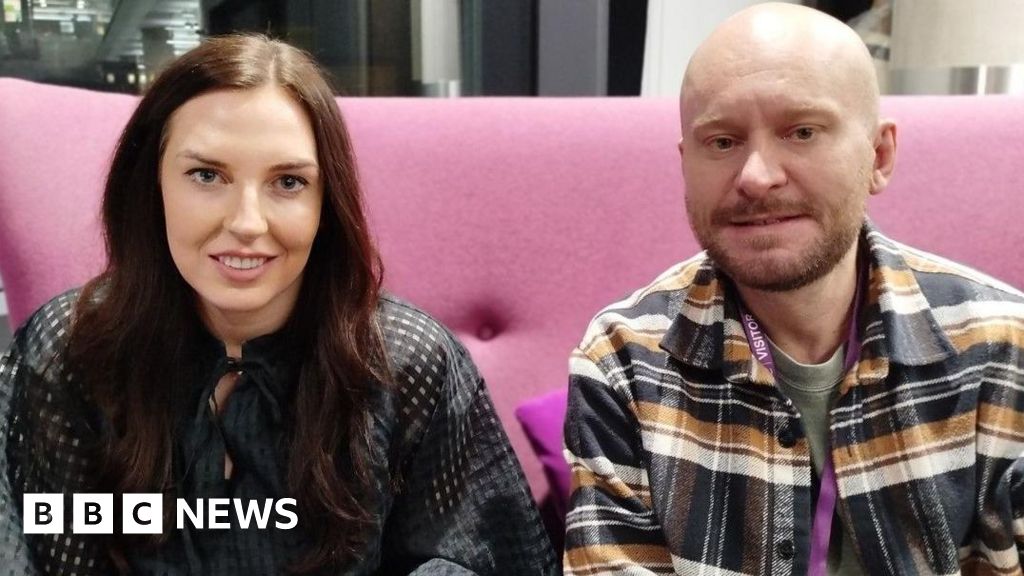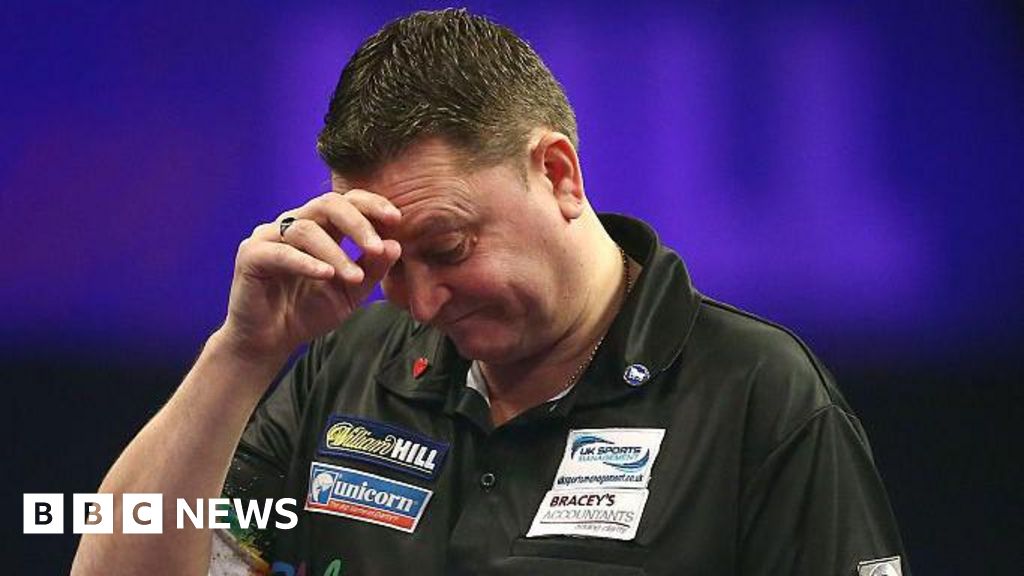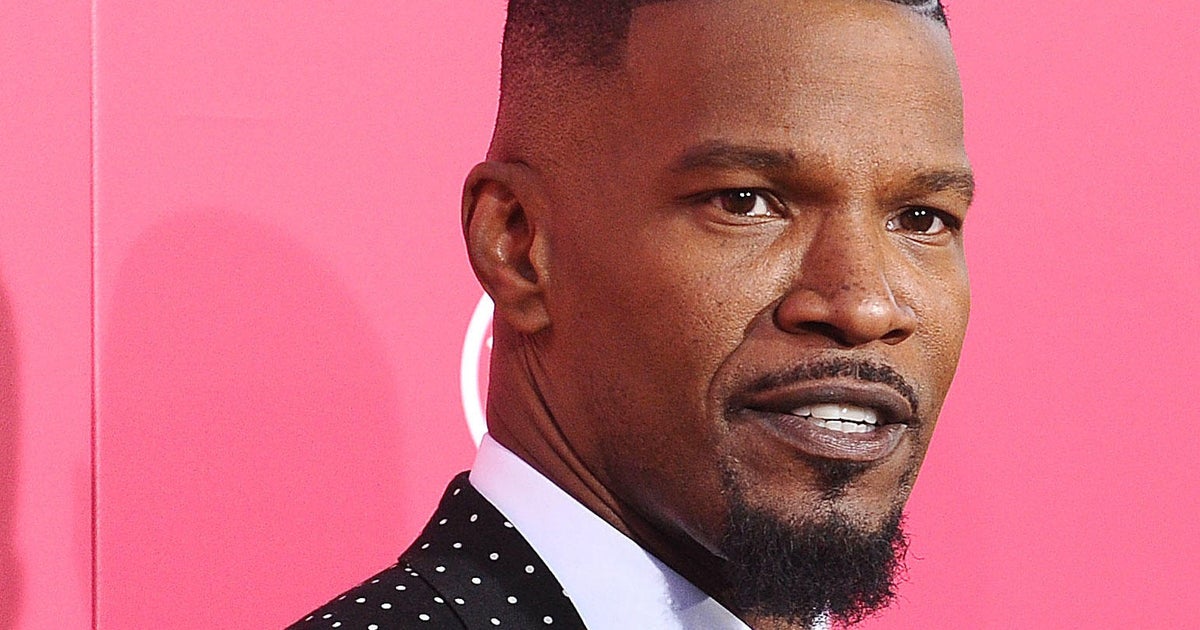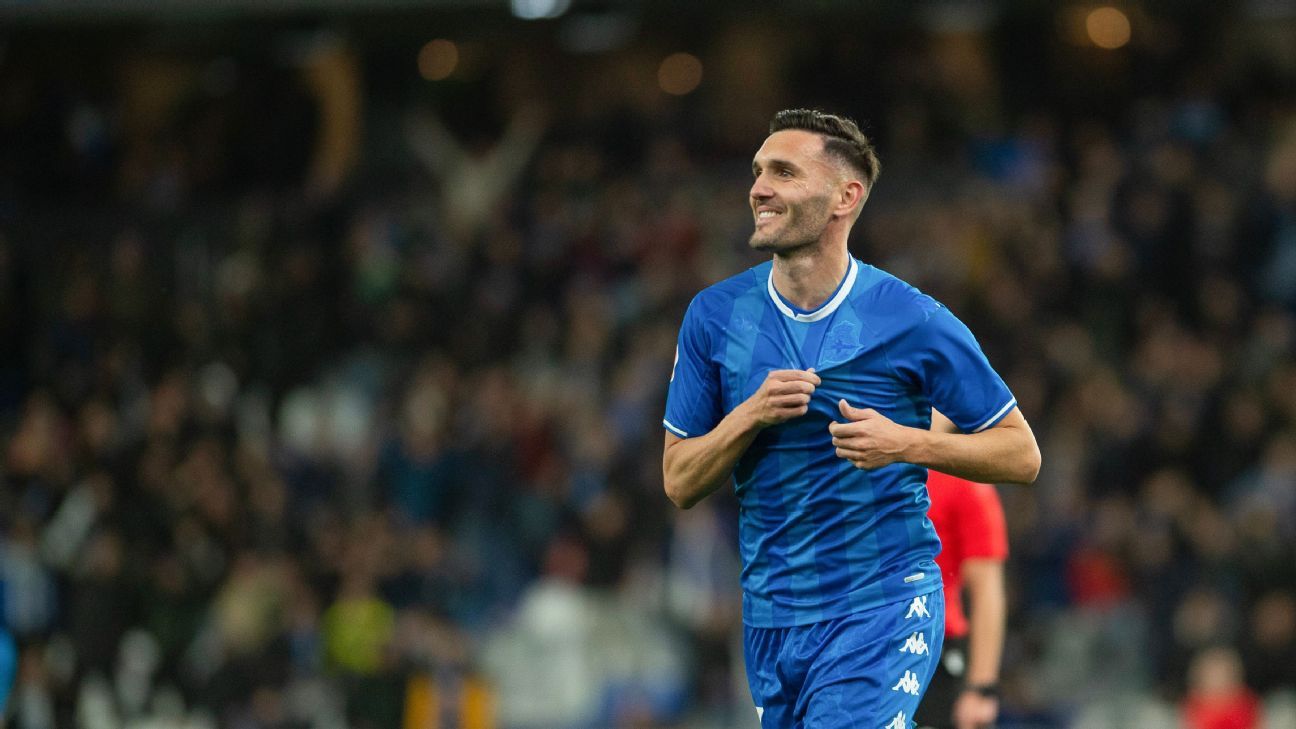A CORUNA, Spain — “Every player has their experience, what they lived, their story,” Lucas Perez says. “This is mine.”
Outside, the winds whips through Abegondo, Deportivo de La Coruna‘s training ground, rattling windows. Inside, Perez, the club captain still in his training kit, is tracing his journey here, going back to the place it all began. To Monelos, the city neighbourhood where he was raised, with its fourteen blocks of flats, its drug problems and his dreams. To the stadium he always wanted to play in, and where he now does.
It is less than two miles from those fishermen’s towers to Depor’s home ground of Riazor, which stands on the beach and — like Galicia, land of emigres, the northwestern corner of Spain that people leave — looks out across the ocean. But Lucas’s journey has been a lot longer.
“I grew up with my grandparents,” he says. “My dad was at sea. He would be away for six months at a time or more: [in a fishing area called] Gran Sol in the Atlantic. I lived with my grandparents in Monelos; they raised me in one of the flats given to fishermen back in the day. It was a humble, working-class neighbourhood. Everyone knows each other, people live their whole lives there. The kids would play at school or on the concrete courts. I went to a team called Victoria; you could sign up from four or five years old. When I didn’t play there I played in the street. And, basically, that was my story. My life. Always with a ball.”
“I left home at 15. Alaves first. They had problems and decided to send a load of us home. A couple of years playing at local clubs. Montaneros. Ordenes. Then Atletico Madrid. Rayo Vallecano. Ukraine, Greece. I come home. I go again. To England. Arsenal. West Ham. Then Spain. Alaves. Elche. Cadiz. Now Depor.
“Half my life I have spent away from Galicia. Maybe you wouldn’t have planned it like that, maybe that’s not always the way you wanted it, but that’s where life is: opportunity. I am in love with football. It’s my passion. I knew what I wanted. I fought for it, pursued it, and I have been a professional for fifteen years. I have always played in the first division.”
“Until now.”
– Stream a replay of Athletic Club 1-1 Osasuna on ESPN+
– Stream on ESPN+: LaLiga, Copa del Rey, more (U.S.)
Now Perez plays in Primera RFEF, the country’s third tier with its forty teams and two divisions. Not because he had to, a 34-year-old striker past his best forced to slip silently down the divisions, but because he wanted to. This is the life he chose.
In January, Perez left first-division Cadiz — where he was not just a starter but the top scorer, where he bade farewell by getting a goal on his very last game — to sign for Deportivo de La Coruna, two divisions lower and a world away. In salary, for a start: a tenfold cut in pay.
But, he had decided, it was time to go home. To play for his team. It had been for a long time. “I wanted to play for Deportivo many years ago and I couldn’t,” he says. Now, he could. It cost him half a million euros to buy his freedom, and it was worth every cent. “I don’t see this as going to the third division, I see this as going to Deportivo,” he insists.
This is his third spell here, and it will be his last — which is what he had wanted the others to be, too. It took him until he was 26 to make his debut for the club he supported. He went, came back, and was forced to leave again. He had been trying to make his final return happen for almost two years, seeking to convince Cadiz to let him go.
In January at last, he got his wish. There is something very fitting, very Galician about it. Here, where many go to sea, and many leave, they talk about morriña: the pull of the land, of home, a kind of longing, a nostalgia. Many never get back; Lucas did. Sometimes though, it must feel like it took too long to get here, where he always wanted to be.
“I don’t see it as a case of taking too long; I see it as a case of things don’t always happen when you want them to,” he says. “Life is a process. You don’t get where you want at the start. Everything in life costs.
“What matters is that I got to Deportivo, which is where I wanted to be and I have had a long, important career. I played in the Premier League. The hardest thing is always to have played in the first division, to remain at the highest level, and I did that. When I was in Ukraine I never thought I would play for a team like Arsenal or West Ham. And then to play for Depor. I’m proud of where I have been, how I got here and what I have achieved. I followed my path.”
(Editor’s Note: This interview has been lightly edited for length and clarity.)
Sid Lowe: You set off, alone, at 15.
Perez: It’s hard because I don’t think you’re ready for it. I had been living with my grandparents and they gave me everything. It was all done for me. And you go somewhere where you have to do it all. You turn up and there are people from other cities, other countries.
But it’s nice too: I’ve played with players from Africa, South America, Europe. Russians, Ukrainians, English, Germans, every nationality. You might not like what’s out there, you might decide that you like home more, but how do you know that until you have lived it? And if it’s bad, you learn. That has been good for me, to help me understand what I like, where I want to go, where I want to be.
Was Ukraine really that bad?
It was the first adventure where I left the country. I was 20. You go there and you’re abandoned, helpless. I didn’t speak the language: not Ukrainian, not Russian, not English. There’s a translator but what happens if you get ill? Who takes you to the doctor’s or the pharmacy at 2 a.m.?
I was lucky, I became very good friends with Daniel. He was an Ecuadorian who lived there, studying at the university. He had economic difficulties and came to live with me. He helped me a lot. He spoke Ukrainian. If not, I don’t know where I would be. We’re young but it is true that we have money as players, compared to a normal 20-year-old and let’s be honest: money helps. But 20 is still 20, away from home, without the language. The money doesn’t bring your family close. In that sense it was hard; you feel forsaken. And then my teammates were…well, a bit like that, y’know? [There’s a pause.] They weren’t great teammates. But not just with me. With other foreigners too.
Why?
They didn’t take well to the fact that there were people coming in from abroad who earned more money. [They felt] maybe the president liked people who came from outside more.
You had problems with the president, though.
They didn’t pay. I was there because I had gone from Rayo, where we had that situation with [Rayo owners] the Ruiz Mateos family in which we had gone months without getting paid. We had no money, no salary, and a flat to pay for. I was 18, 19, I hadn’t earned enough money to have a cushion to see me through that. I had no savings.
I went to Ukraine, they gave me a signing-on fee, and the first thing I did was buy myself a flat back home in A Coruna and try to save what I could. But then you might go four months without getting paid in Ukraine. Or he would decide that he was going to take 20%, 30% off you. You would go and ask why. Why? Because the president wanted to. And that’s that.
But you were playing well. It’s not like you were letting them down.
I was lucky: on a footballing level, things were going well. I scored goals, went to Dynamo Kiev. But day to day it was hard. You would go unpaid, there were teammates who didn’t help you, the culture was difficult. I spoke to Andriy Yarmolenko about this [at West Ham], and he recognised a lot of the things I went through. We told a lot of stories.
In a situation like that, what do you do? Call your agent?
What are you going to call your agent for? What can he do? They’re going to do whatever they want to do.
Why?
Because the contracts leave you very unprotected. This is where UEFA have work to do. In Spain it’s all legal, all clear. In Ukraine — and I am talking about my experience, not about the whole place — the working conditions weren’t good. Not for me, not for others. My salary was [officially] €500 [a month].
Do you think a player will leave Spain to go there and play for €500? I went because I needed the money. And then…well, you learn. You need to experience that to learn. It was enriching at a personal level. And now I am home and I feel fortunate, but I fought for that. No one gifted me anything, just like so many people.
You go there, you’re alone, a kid.
No one can go with you. To get there from my city, it’s four or five planes. A Coruna-Madrid-Prague-Kiev-Lyviv. One time they diverted our plane to the border and we were there waiting, fifteen hours to cross. We couldn’t land because of snow, so we landed in Poland. The bus driver they had didn’t have the visa to cross. We had to pay some people to take us over the border in their car. There are lots of stories. I wanted out after two months.
But getting out is not so easy.
I was there three years! I wanted to go after two months.
So how did you get out in the end?
By playing well.
You had to win to convince the president to let you leave?
No, no. The president from PAOK Salonika was the one that convinced him, by paying. Playing well convinced him to sign me and so when I got out, it was thanks to him. He came to Ukraine to fight for me. He was Russian: he and our president argued, negotiated, and eventually agreed a deal.
Meanwhile, you can only wait and hope?
PAOK tell me they want me. I say yes of course. It’s a big club. I could play in European competition. And the contract is good. There are no problems: everything is paid into your account. They came, fought and got me out of there. And they changed my life. I had a proper, professional contract.
Does that make you think: “bloody hell, football is s—” sometimes?
But it’s not just football. In life, there are many things that are s—. Any job can be. But we have to understand that football has two elements: the sentimental and the professional. You have to be able to distinguish between them. The business can be like that. There are lots of people who want to con you, who promise things. But I think that’s true of any area of life where there is a lot of money around.
PAOK opened the doors and treated me well and I can only say thanks. Club, president, teammates: they were all very good to me. Also, those are stages of life. You have to live them. I am a dad now: my son can’t walk yet, let alone run. He has to crawl, toddle, fall, hurt himself. That’s how he learns. How do people succeed? By having failed a million times. By learning. And football’s the same.
The difference is football is more meritocratic than most industries. If you’re no good, there’s no bluffing your way to the top.
[Lucas points to the pitch outside] That? That doesn’t lie.
So getting to Greece is…
A huge relief! A professional club. A proper training ground, proper travel, real hotels. Everything is proper. In Ukraine, the president would stick us in a convent if he got annoyed with us. There was this convent run by cloistered nuns, who would rent out rooms. We would stay there the night before games sometimes, sleeping in double rooms. It was all very religious, very austere. With time, you learn to appreciate those experiences. When I get to Greece after that, PAOK is the best team in the world.
After Greece, you finally get to Deportivo, the team you always supported, for the first time. You’re 26. But then you leave for Arsenal, come back on loan, and leave again this time for West Ham. Even then you talked about needing to come home, how this was your place, that all you wanted was to play for your club. Does that mean you didn’t want to leave when you did?
Well, look: want? No, but there are opportunities.
But for you or for the club?
You have to understand the situation. Arsenal paid €21,400,000 for me. And a club that has the kind of debt that Deportivo had at that time, it’s hard for them. I had cost them something like €1.5m. They’re multiplying their profit many times over. It’s not that they put me up against the wall or anything but they tell you what the situation is: they saw that money as being good for them, to help them improve [the situation], to grow.
So, well, what happened, happened. For me it was a chance to go to Arsenal: it’s one of the biggest clubs in the world, I won two trophies there, it’s the best club I have been at in my career in terms of its history, its fan base, the people I played with, everything. It was incredible, really good for me personally. I had never won anything; I did there. I was coached by Arsene Wenger, one of the best in history.
But it didn’t go as you hoped.
Wenger called me, told me he trusted in me, that he had seen lots of videos. I got on very well with him. But then I didn’t get opportunities. He had Olivier Giroud, Alexis Sanchez, Danny Welbeck, Mesut Ozil. Arsenal sign chosen ones. I didn’t demand to start all the time, but a few minutes. I scored a hat trick in the Champions League and then didn’t play a minute in three, four games. So of course you feel frustration but you do understand it: the best players in the world are there alongside you.
You go to training and there’s Alexis ready to play. And you think: are you better than Alexis? He’s very good too. He was having a great year, one of the best with Ozil, Santi Cazorla. Giroud didn’t play much — and he’s a world champion, you know? Alexis was in great shape, amazing form. The manager wants to win in the end: and we did win. My numbers aren’t bad: I finished that season with nine goals and six or seven assists. I played 1,000 minutes. If I play every game that works out at 20, 25 goals. And the fans have always shown me a lot of affection, they seem to have good memories of me.
You have a year back on loan at Depor and then West Ham sign you. Is that return to England in 2018 about proving a point after what happened at Arsenal?
No. It was a chance to try the Premier League again. In the end, they didn’t put their faith in me, but that’s normal, that’s football: not every player will play well. I then went to Alaves and there I was top scorer until the pandemic because they played me, trusted in me and it came off.
The line between success and failure is very fine.
I don’t see it as failure. It’s football, not a failure. Sometimes it doesn’t happen. How many times have players gone somewhere and it hasn’t worked? Then they go somewhere else and they’re really good? Take Alexis: he was incredible when I was at Arsenal, then he goes to Manchester United and nothing. So? Are we saying he’s a bad player now? No. Maybe it wasn’t quite right for him. We’re people. It’s very hard to make it, we have to appreciate that.
In England, my numbers are there: they’re good for the minutes I played. Then I go to Alaves and it goes very well. I even get an offer from Barcelona when I was there, but it wasn’t to be.
Why not?
Alaves didn’t want to sell me.
What went through your head?
What can go through your head? You can’t do anything. It’s frustrating.
Can you plead? It’s Barcelona!
And it’s Villarreal too. But they said: [Barcelona have to pay the full] buyout clause, €15m. I was 31 years old. If it had been €8m, which is what Barcelona offered, then okay. But not €15m. No pasa nada: that’s the way it is.
What are you going to do? It’s a train coming past and you can’t get on. You have to understand Alaves too. They want to stay up and selling their top scorer isn’t a great idea. It happened to Joselu the following year when Sevilla wanted him and Alaves wouldn’t sell. And they went down anyway.
When I had came back from Arsenal [on loan], I had Villarreal and Valencia as options, but I wanted to go home to Depor. And that year we went down. My only relegation was here at Depor, in my home.
That hurts, a thorn in your side still.
Mucho, mucho. I can’t forget that.
🙌🏻 ¡¡@LP10oficial 𝗩𝗨𝗘𝗟𝗩𝗘 𝗔 𝗚𝗢𝗟𝗘𝗔𝗥 CON LA CAMISETA DEL @RCDeportivo!!
🗣️🏟️ Riazor retumba con la primera diana del ‘7’ en #PrimeraFederación.
📹 https://t.co/5DMBP4yBOo#ElFútbolDePrimera pic.twitter.com/mBevki6RR1
— Primera Federación (@Primera_RFEF) January 8, 2023
You decided you wanted to come home to Deportivo for good, even though they had slipped further down to the third tier, but the story repeats itself: Cadiz wouldn’t let you, not at first. You have been trying to make this move now for two years.
I had to convince them because they wanted me to stay. By the end, I had a year left but an offer to extend my contract.
What did the Cadiz president Manuel Vizcaino say when you told him you wanted to leave his club, a first-division team, to go and play for Deportivo in the third?
[Lucas laughs] He’s my mate. So I tell him like a son tells a father. We chat. We sit down. An hour goes by, two, we talk about loads of things, not just me going to Depor. He understood but he defends his position too. He’s the president of Cadiz! The president of a first-division team with loads of fans. I understand it perfectly. I would tell him every day, in the end, I convinced him.
And the thing is, I was happy at Cadiz. You can’t be sad there. It’s impossible. There’s no way anyone can ever go to Cadiz and say they don’t live well. Lies! And Cadiz and Coruna remind me of each other a lot. I was happy there.
The manager, Sergio Soriano, said: I can see you’re happy, that you love football, but there’s something inside you that says you have to go home. And you can’t control that. Sooner or later you have to go home. It was hard for him to keep playing me because people knew that I had asked to go but I kept playing. I scored on my final game, which gave me great satisfaction.
Vizcaino had tried to provoke you into staying by poking at your pride, daring you to really do it: to really drop down two divisions to a league beneath you, to risk saying goodbye to top-flight football forever. Your agent couldn’t believe you wanted to drop so far, either. Even if you do get promoted this season, you won’t be back at the level you left.
That was the hardest part. It’s lovely to play in primera: you play on the best pitches, against the best players. I did that for 15 years in Greece, Ukraine, Spain, England. I have only ever played seven games in the second division, when I was starting out at Rayo. I had only played ten games in the third tier, where I am now, when I was in the B team at Rayo. And that’s it. Otherwise I had never set foot in this level, so it was hard.
And then there’s the money. Here’s the rudest, most ugly question of all. How much of a pay cut did you take to drop down two levels?
There’s a big difference. Mucha, mucha.
How much is mucha?
It’s €90,000 net, this season. Less than that. And I had one of the best contracts at Cadiz. I don’t know if the highest, but more or less. And I had an offer to extend it for two more years, paying me more.
And yet you took the cut. And you paid half the transfer fee.
€493,000, yes. I don’t go to the bank and take it out, then pay it in. The Cadiz president does it: it comes off the money they owed me. But that money was mine. I had earned it but didn’t have it yet. I was lucky; I had always had good contracts in the first division. And almost €40m have been paid for me in transfer fees, so I feel like I always have left some money, that they have done good business with me.
This time, quite literally.
Look, it’s a lot of money, yes. But I don’t like to talk about it in those terms and it was something I wanted to do. Come home, play. I was thinking: how do you want your career to end? In the first division? Or at home, trying to take your team back there? I had the chance to continue at Cadiz and other first-division teams were interested too. But I felt like going home and trying to finish my career there. Why not? In my mind, I had wanted this for a long time.
Even when I first went to Cadiz I was already thinking about that. At the time it couldn’t happen because Deportivo were in administration. Look, the way I see it, the money I have invested to come home is well spent. Maybe this isn’t the way you imagined it, but this is the way life took you.
Do you play differently now?
Subconsciously maybe, but I don’t think so. I have always given everything; the shirt I have worn is always the most important. But I go out at Riazor and for me it’s a first-division ground. In fact, it is a first-division ground. It’s Deportivo. It’s 20,000 people. Every game, 20,000!
The day I made my debut there were more people in the ground watching us against Unionistas than watching Real Madrid at Villarreal. And when you score, pfff, the feeling is unique. You’re not even conscious somehow. And then you hear them sing your name. It’s beautiful to be home again. I feel at peace with myself.
How does it feel to be the best player in the league?
I’m not.
You are.
I am just happy to be here. And it’s hard, I can assure you. There are good players here.
But you’re the Messi of Primera RFEF.
Buah! Not at all! Let me go up with Depor and play against him in primera.
But he wont be there.
Maybe he’ll come back. God willing. I have played against him lots of times. We have suffered him at Riazor. Let us suffer him again — or try not to. That would be nice. Playing Cadiz would be incredible. If I score, they’ll understand. It would piss them off but they would be happy for me.
And then a Depor-Celta in the first division. That’s the game I would most like. I can’t even imagine promotion; I don’t want to. I want to live it. I would love to be able to retire from football leaving Deportivo in primera. That would be nice.
How many years do you have left?
Lots. Because I still have the desire, the passion. I’ve not had too many big injuries, no operations. As long as I enjoy it, I laugh, I come here each day and love it, I’ll keep going. I’m doing what I always wanted to do. I’ve been in football since I was a little kid learning to tie my laces, until the day that you untie your boots for the last time and hang them up, the day you leave football behind, nothing will be the same. The smell of the grass in the morning: it’s unique.
A friend who is a Depor fan says she cried when you came back — and she hadn’t cried for ten years. Are you aware of just how big the impact has been?
We’re people, we have feeling: to see someone so happy for you, so pleased you’re there, is priceless. People here have lived through so many disappointments, the situation at the club is not easy, you feel that it’s just not happening, that football has not been giving this city back what this city was giving football. What this city was chasing, what it was dreaming of, was just out of reach. And maybe in me they see hope, belief.
People talk about the ‘Lucas Effect,’ and if that effect has been generated, I’m happy. But anything I have given was repaid many times the moment I saw all those people at my presentation. It was cheap! That’s the greatest affection I have ever felt in my life. I will carry that with me forever. One day I will tell me son: I lived that.
What would your grandparents think?
They would be very proud. If there’s anything I could change in my life, I would give everything to be with my grandparents. I was 14 when my granddad died, 16 when my grandmother died, I wasn’t truly conscious of everything they mean. In my case, even more so because they were the parents I never really had. I want my son to spend lots of time with them here, because that link is special. The love and grandmother and a grandfather have, no one does.






